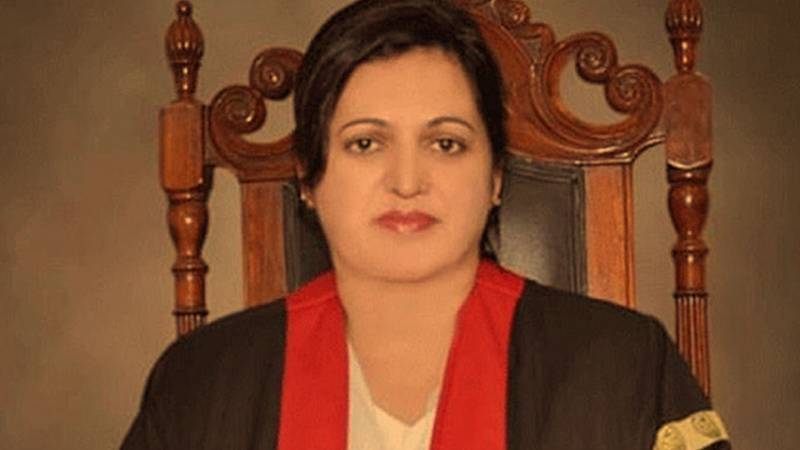
Lahore High Court's newly appointed Chief Justice Aalia Neelum, has taken notice of the large number of cases pending in the accountability courts of Lahore, issuing orders to transfer pending cases to other courts to ensure speedy justice.
Of the 10 accountability courts in Lahore, three have judges, while the remaining seven are dysfunctional because they do not have any judges appointed to them. As a result, accountability cases have been pending in these courts for a long period.
To resolve the pendency of cases, LHC Chief Justice Neelum has directed the transfer of 65 pending cases from non-functional courts to functional ones.
In this regard, she has directed the transfer of cases pending in Court No. 2 to Court No. 5, cases in Court No. 3 to Court No. 10, and cases in Court No. 6 to Court No. 9. Accountability Courts No. 1, 4, 7, and 8 of Lahore currently have zero pendency.
Chief Justice Neelum explained that the provision of swift and quality justice is the top priority of her judicial administration. She has directed that cases should not be unnecessarily delayed in any court and has vowed to take all necessary steps to ensure the expeditious disposal of cases.
It is worth noting that the cases transferred from the non-functional courts are a temporary measure and will be returned to their original courts once judges are appointed in those courts.
This move by the Lahore High Court is seen as a significant step towards ensuring the provision of justice to the people of Punjab without any unnecessary delays.
While experts hailed the move, noting that it will help move the needle on many cases that have been pending for a long time in accountability courts without judges, others voiced apprehension that this move will significantly increase the existing caseload in accountability courts with judges and delay cases that were already pending with them.

